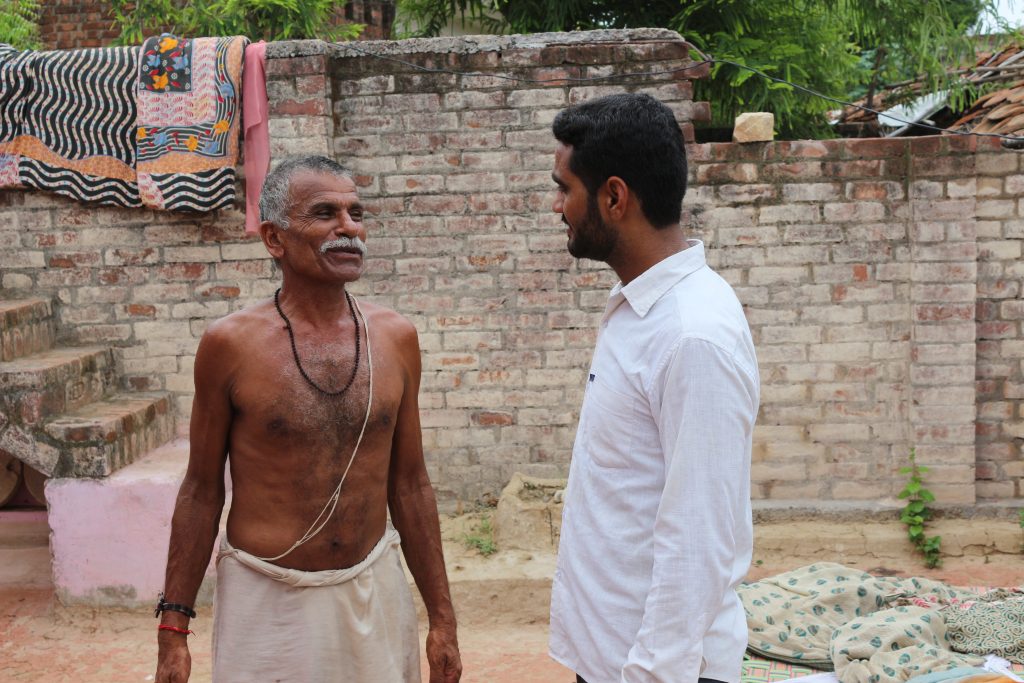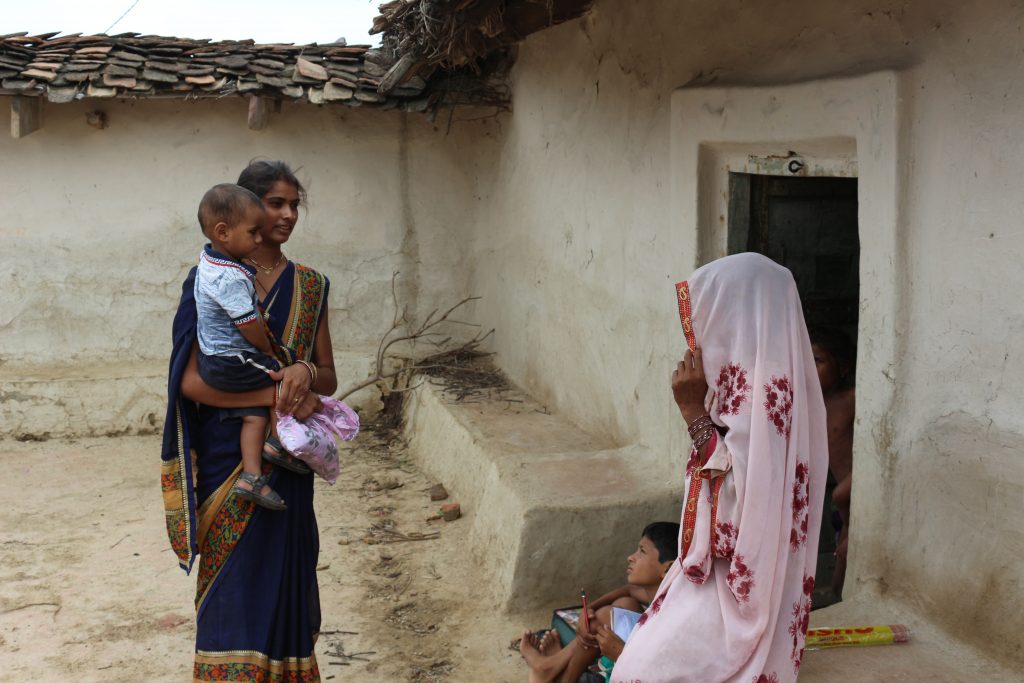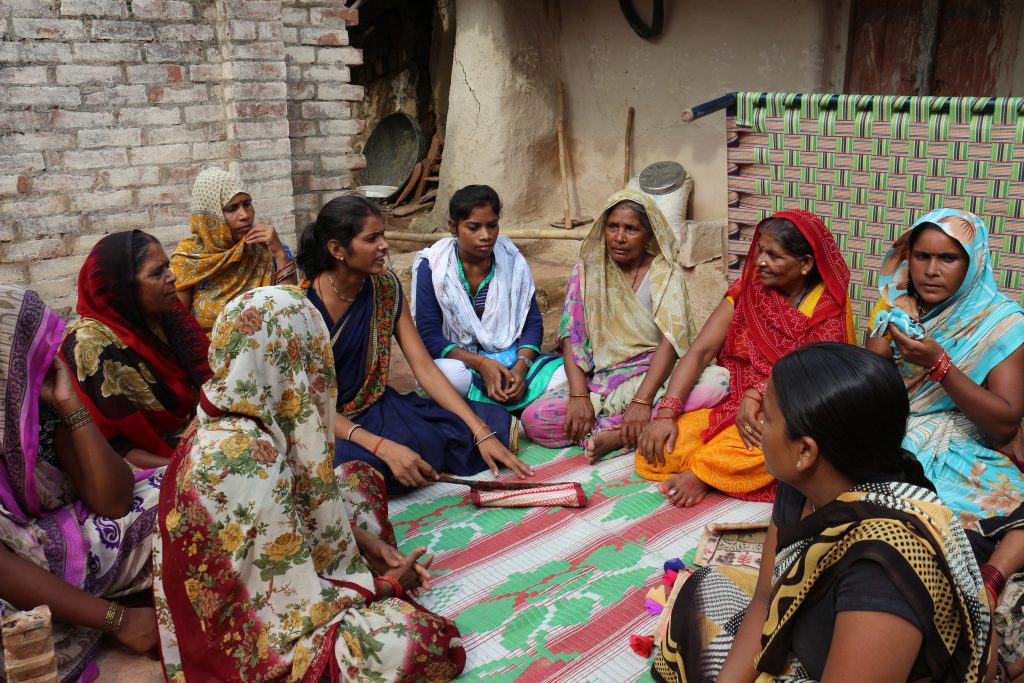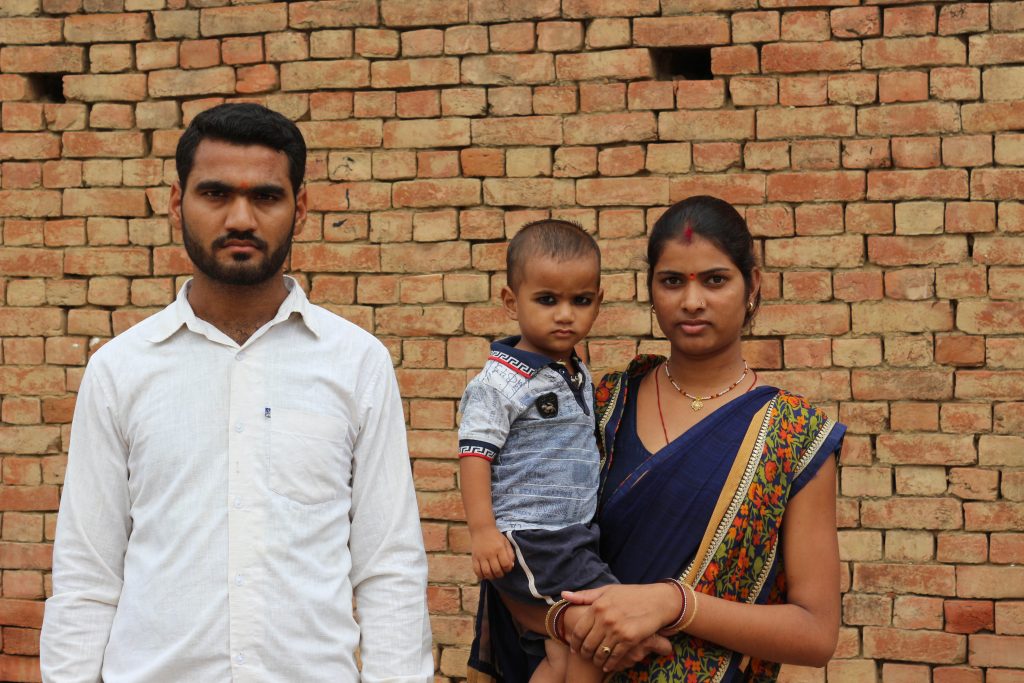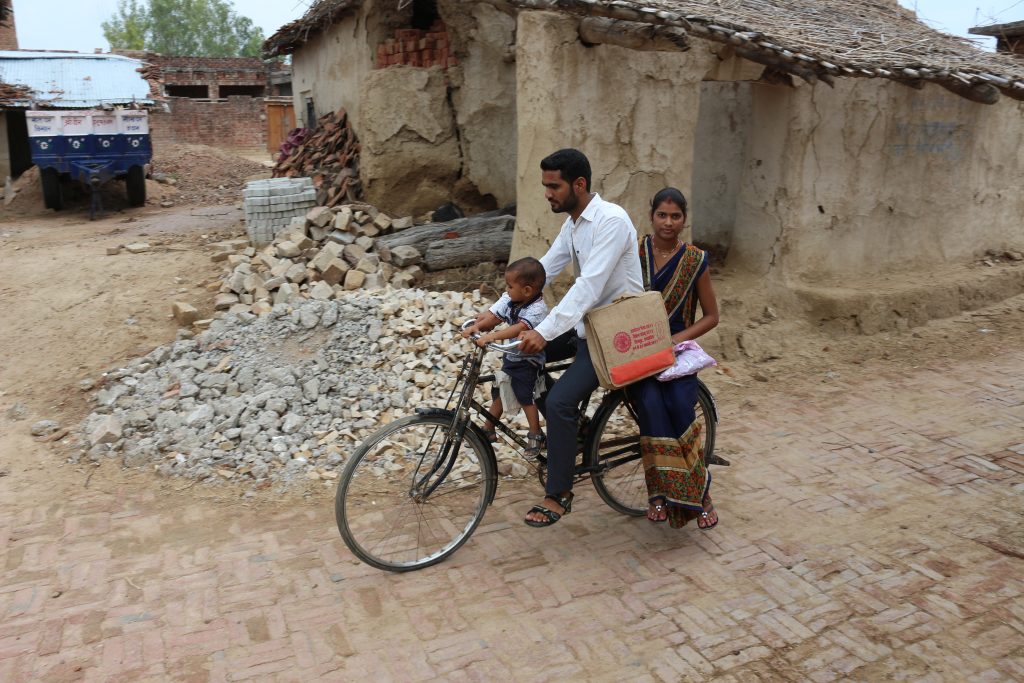‘Samaj Shilpi Dampatti’ or ‘the architects of social change’ or ‘agents of rural development’. These are all synonyms for the couples that are dedicated to the reconstruction of society and the nation. Under this unique concept, initiated by Deendayal Research Institute (DRI), these selfless and dedicated couples are bringing social change through India’s own paradigm of development — self-reliant villages — thereby influencing the values of life in the cities.
It is an altogether untenable notion that men alone can succeed in the task of nation building, without the active participation of women. Both of them are vital pillars of the social system. An imbalance in their rights and roles threatens to tear apart the cultural fabric of a nation. It also retards the nation’s development. Their lives ought to be complementary to each other’s from the viewpoint of society, family and the individual. This was the philosophy behind the Samaj Shilpi Dampati scheme launched by Deendayal Research Institute at Chitrakoot for the development of the villages. This concept also stems from the guiding principles of the Institute, as laid out in the philosophy of Integral Humanism, that it is the family that is at the centre of the society.
The scheme, which was launched with the participation of 11 newly married couples in 1996, has witnessed the participation of more than 96 couples till date. The work of the couples, which was started with few villages, has ensured the success of DRI’s projects in in the 500 villages of the Self Reliance Campaign.
Nanaji Deshmukh, the brain behind this scheme said, “A family or society is not created only by men or women, separately, but by the mutual cooperation of both. Whichever campaigns that were launched in society that ignored this fact, have not been able to meet their goals, and this is true for several other ongoing campaigns also. Mutual cooperation and equal participation of men and women is the key to creating a new society. Unfortunately, this aspect has always been overlooked. Therefore, to implement this fact and popularize it, contributions by newly-wed couples in social development, is only the solution”.
Chitrakoot was selected as the laboratory for this experiment and 500 villages were chosen for the task. The villages were divided into clusters of five and at the centre of these five villages, a newly married, graduate and devoted couple was posted after bing given adequate training. The couple was given the name Samaj Shili Dampatti (SSD) or social architect couple.
One may raise this question — why are only couples engaged in this process of development and self-reliance? Nanaji Deshmukh’s and DRI’s philosophy is — an individual cannot survive without society and vice-versa. So an individual and society are complementary to each other. The family plays an important role in bridging the two. However, today the harmony between an individual, family and society is diminishing because the basis of family life is being overlooked. A family is not able to fulfill its responsibility of involving its children in social activities. Today, society is just a name, as a social life is missing. An individual’s life today is buzzing with consumerism. If we want to lead a life enriched with moral and human values, we would have to make humanity the source of inspiration for families.
As the SSDs work together in social development activities, almost all men and women of the localities are motivated to participate in various development programmes and activities. Thereby, most of the families of the villages are involved in serving the people of their locality without any discrimination. Even the children have started imitating their mothers engaged in social work. In this manner, the families are automatically developing as basic model units of society. The enthusiastic cooperation of the people to accomplish this unprecedented task of rejuvenating social consciousness in family life has given a boost to the plan of sending young couples in all the selected clusters.
It is believed that development of an individual begins when he is in the womb. Keeping this fact in mind, we should make arrangements to inculcate social value in him right from this stage so that future societies would be morally rich. No one but the Samaj Shilpi Dampati can fulfil this task efficiently. They meet people of their area and ensure that every pregnant woman in their area remains happy and healthy. They conduct activities that lead to the moral development of the child in the womb. They do not do this work alone but involve the entire community.
The couple has to devote at least five years to serve among their rural brethren in selected clusters of villages around Chitrakoot. During these five years, the couples are entrusted with the responsibility of making the villagers and villages socially and economically self-reliant. Social life here means the integration of social, economic, administrative, cultural activities, and, art and tolerance. No work should, therefore, be considered great or small.
They are entrusted with the task of coordinating the overall implementation of the Chitrakoot Project (including the activities of Arogyadham, Education, Research Centre, Schools, Krishi Vigyan Kendra and Udyamita Vidyapeeth). Besides, they also contribute in making the villages self-reliant by taking help from government and non-government organizations. A couple normally worked in a cluster of five villages for a period of five years. For this reason, the scheme is for a five-year period. Apart from this, they can motivate the locals to do something for their own villages and can also work as a bridge between the villagers and DRI. Even the oath, which these couples are administered after their training, highlights exactly what is expected from them for nation building. The oath says:
“Whereas on finding the freedom of the motherland, for which countless generations of the youth of India fought a bitter and relentless battle for centuries, and underwent untold sufferings and privations and sacrificed their fondest dreams and aspiration of personal family life so sorely imperilled, and whereas we, husband and wife, have unbearable pain in our hearts;
Whereas ever since the attainment of independence, unabashed worship of power has monopolized the psyche of the NATION, virtues of patriotism and social commitment have taken wings and flown away, and the otherwise irresistible youth power has not been getting channeled in the service of the country;
And whereas without reviving and resuscitating that time-honoured special characteristic of an Indian life, which always found its fulfilment in doing duty in the service of the people, neither shall the society progress nor the country find her allotted place among the comity of nations;
Both of us, husband and wife, therefore, dedicate our lives in the task of the nation’s reconstruction and hereby take a solemn pledge that:
We shall offer, as called upon, our active and unstinted cooperation to every section of the society in the onerous task of creating anew a spirit of mutual complementarity among all the citizens and help develop among the new generation ideals of self-reliance and social development.
Not just that. We shall work ceaselessly for making every family in the allotted area cultured, civilized, moral, prosperous and full of humanistic caring and sharing.
Thus, performing our social duty in the manner desired, we shall seek the fulfillment of our married life.
We are confident that with the blessings of Lord Rama, the one whose life was wholly uninfluenced by the snares of pelf and power, we shall succeed in our sacred mission.”
These Samaj Shilpi couples, by living in the village itself, and sharing the villager’s joys and sorrows, over time, become the natural leaders of the community. Perhaps, we need nothing better than this to happen to our villages. It is only this input that our villages lacked. And it is only this input that the Deendayal Research Institute is sworn to provide.
Another important aspect of this experiment is that these Samaj Shilpi couples are drawn from each and every part of India, which means that no state or region go unrepresented by them. After working with the community for five years, they will be asked to go back to their own states and areas and spread the message of Chitrakoot there, thus making this experiment an all India voluntary movement of social change.
And once this happens, the desired social change will not travel from the city to the country but will start flowing in the reverse direction — villages influencing the values of life in the cities. It is this, which we can call India’s own paradigm of development.
One may again ask why are the couples required to work in villages only. To this the answer is — More than 60 percent of the population live in the villages. Nature can be found in its true form in villages. They are also a synonym for food providers. Nearly 190 million hectare of agricultural land is in these villages. Development of urban areas comes from resources like agriculture, forests, animals and mines that are all found in villages only. However, our villagers are still migrating to cities in large numbers. Why? Our traditional sources of employment are dying out. During the last 54 years of independence we lost our labour. We have become victims of government policies, of our politicians and bureaucrats. This attitude of government dependency is ruining not only our society, but its future as well. DRI, therefore, has made self-reliant villages as its base and presented this commendable model for development.
Our firm belief is that an Indian villager has the capacity to change and adapt himself to any technology, provided it is demonstrated in actual field conditions and proves that it fulfills his needs. A corollary of this experiment is that the methodology employed will allow the couples will be able to manage both continuity and change in the most practical manner.

